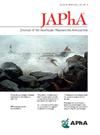基于大型语言模型的普通非处方药和草药补充剂的潜在药物相互作用风险分层。
IF 2.5
4区 医学
Q3 PHARMACOLOGY & PHARMACY
Journal of the American Pharmacists Association
Pub Date : 2025-01-01
DOI:10.1016/j.japh.2024.102304
引用次数: 0
摘要
背景:随着综合用药、非处方药(OTC)和草药补充剂的使用越来越普遍,潜在的不良药物相互作用(ddi)对患者安全和医疗保健结果构成了重大挑战。目的:本研究评估生成预训练变压器(GPT)模型准确评估处方药(Rx)与OTC药物和草药补充剂的ddi的能力。方法:利用流行的基于订阅的工具(Lexicomp®),我们比较了这些模型分配的43对处方- otc和30对处方-草药补充剂的风险评级。结果:我们的研究结果表明,所有模型通常表现不佳,准确率低于50%,并且与科恩kappa测量的Lexicomp标准的一致性较差。值得注意的是,与GPT-3.5相比,GPT-4和gpt - 40在识别高风险相互作用方面表现出适度的改善。结论:这些结果突出了在DDI评估中使用现成的大型语言模型(llm)进行指导的挑战和局限性。本文章由计算机程序翻译,如有差异,请以英文原文为准。
Risk stratification of potential drug interactions involving common over-the-counter medications and herbal supplements by a large language model
Background
As polypharmacy, the use of over-the-counter (OTC) drugs, and herbal supplements becomes increasingly prevalent, the potential for adverse drug-drug interactions (DDIs) poses significant challenges to patient safety and health care outcomes.
Objective
This study evaluates the capacity of Generative Pre-trained Transformer (GPT) models to accurately assess DDIs involving prescription drugs (Rx) with OTC medications and herbal supplements.
Methods
Leveraging a popular subscription-based tool (Lexicomp), we compared the risk ratings assigned by these models to 43 Rx-OTC and 30 Rx-herbal supplement pairs.
Results
Our findings reveal that all models generally underperform, with accuracies below 50% and poor agreement with Lexicomp standards as measured by Cohen’s kappa. Notably, GPT-4 and GPT-4o demonstrated a modest improvement in identifying higher-risk interactions compared to GPT-3.5.
Conclusion
These results highlight the challenges and limitations of using off-the-shelf large language models for guidance in DDI assessment.
求助全文
通过发布文献求助,成功后即可免费获取论文全文。
去求助
来源期刊
CiteScore
3.30
自引率
14.30%
发文量
336
审稿时长
46 days
期刊介绍:
The Journal of the American Pharmacists Association is the official peer-reviewed journal of the American Pharmacists Association (APhA), providing information on pharmaceutical care, drug therapy, diseases and other health issues, trends in pharmacy practice and therapeutics, informed opinion, and original research. JAPhA publishes original research, reviews, experiences, and opinion articles that link science to contemporary pharmacy practice to improve patient care.

 求助内容:
求助内容: 应助结果提醒方式:
应助结果提醒方式:


